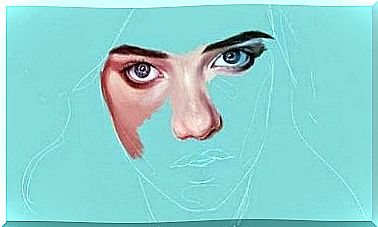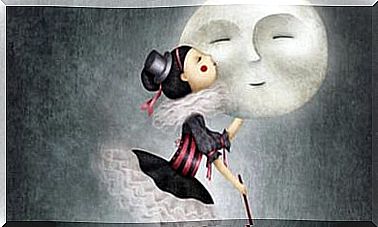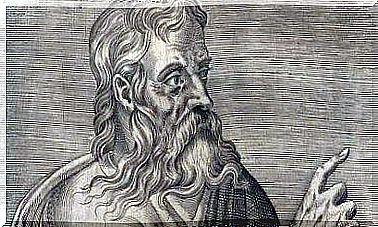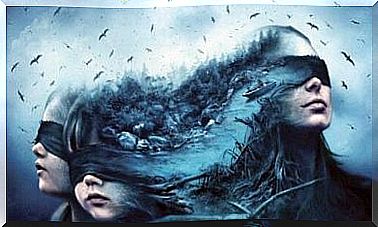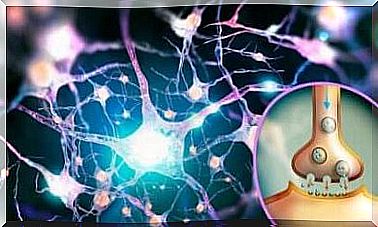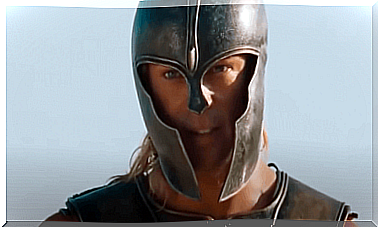Aporia Or The Wisdom Of Contradiction
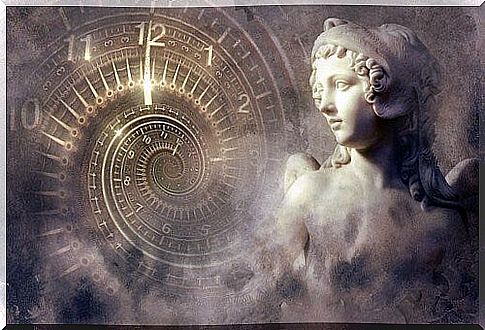
The term “aporia” derives from the Greek and can be defined as a state of indecision or perplexity in the face of two opposite but acceptable arguments. Examples are Shakespeare’s “to be or not to be” or the classic question “was the chicken or the egg born first?”. Issues impossible to solve, philosophical dilemmas that lead us nowhere.
However, in the time of Plato and Socrates, these arguments represented a valuable exercise in preparing for debates and deep dialectical questions. The aim was to raise a doubt; formulate a rhetorical question and thus pass through the ambiguity of the world, the contradiction of life and the intricate arguments, both sensible and senseless at the same time.
We must accept that the very reality that surrounds us is full of unbearable aporias. We are, for one thing, a globalized and incredibly individualistic society. We are free, but at the same time victims of a thousand conditionings, of infinite mechanisms that shape and standardize us.
Aporia is the wisdom of contradiction, that wisdom that invites us to deep reflection, but leads nowhere.

What is aporia and what is its purpose?
When it comes to aporias, it is inevitable to mention the sophisms of the Greek philosopher Zeno. The most famous is the Achilles and the tortoise paradox. The argument on which it rests is the non-existence of the movement as such. The Stoic conceived of movement as a succession of states of rest, that is, as a sum of static images.
For Zeno, the tortoise could be as fast as Achilles’ speed, or even faster; movement, like time, is a mere illusion. Thus, starting from this premise, he explained that if we shoot an arrow, it does not actually move. Its movement is the result of an infinite sum of rest points.
How can we refute this reasoning? If we were based on the laws of mechanics or on Newton’s laws, we could strongly reject them. But if we embrace Zeno’s perspective on the succession of states of rest, we can accept it. These examples show us how familiar the feeling of aporia really is.
Ultimately, it is that uncertainty we sometimes experience when we come across two contradictory but equally interesting, if not valid, ideas. It is a question of perplexity which, although it is not directly decisive, invites us to reflect.
Deconstructing to discover: the value of everyday contradiction
“Aporetic” is an interesting adjective that we should remember more often. It may be good to acquire this exercise of thought and reflection. It would help us deconstruct many of our realities to ultimately discover that there are more possibilities, perspectives and dimensions.
Deconstructing, speaking of aporia, means allowing us to discover the contradiction ; it means accepting in our daily life that opposite ideas can coexist in essence and foundation, but nevertheless acceptable. And that we can learn from any approach to issues, even if they are irreconcilable.
The main purpose of this exercise is to awaken doubt and reflect; accept opposites as an additional element of our life.
Types of aporia
We currently use the term aporia as a synonym for difficulty. With it we indicate a dead end, a challenge with no apparent rational solution. However, in Greek philosophy it was a kind of riddle, an exercise that encouraged dialogue, the exchange of ideas, theories and approaches to knowledge.
We should not see aporia as a meaningless Gordian knot. The state of uncertainty should invite analysis and weighting. It is therefore interesting to understand its two forms.
Argomental: the aporia that starts from doubt
In this type of aporia, the starting point is always a question, a question that is proposed to invite us to reflect while knowing that there is no definitive answer. The aim is essentially to stimulate thought and discussion.
It is interesting to know that most aporias always start with a question. “Was the chicken or the egg born first?”, “Can we always believe what our eyes see or do we see through our interpretation of reality and personal judgments?”, “Does the orange color take its name from the fruit or vice versa? “.
Tonale: starts from an opinion
In this case we are faced with a somewhat aggressive or, at least, peremptory aporia. Here, dialogue is not sought, but rather to impose one’s own truth. It is as if we were merely saying that the hen was born before the egg, full stop. The idea continues to be perplexing, but the statement has a confident tone and tries to convince us of its truth.
It will therefore be more appropriate to resort to argumentative aporias, and start with a question. In other words, from aporia that stimulates discussion and reflection.
Conclusions
Beyond the classical metaphors and rhetorical questions that Plato and Aristotle used for their pupils, there is an undeniable fact. Contemporaneity is permeated with aporia. Politics, society, the world of advertising and much more continue to harbor paradoxes that are disconcerting due to their inconsistency.
It is true that from our position we cannot solve them. The irreconcilability is sometimes constant, we can understand the different points of view, but we are still full of doubts. Understanding this, accepting it and reflecting on those antagonistic universes is positive and will enrich us with the wisdom of contradiction.
[featured-post url = ”https://lamenteemeravigliosa.it/mente-errante-cose-e-quali-effetti-ha/
